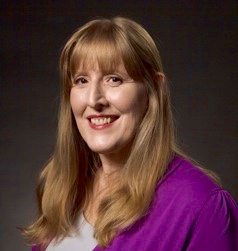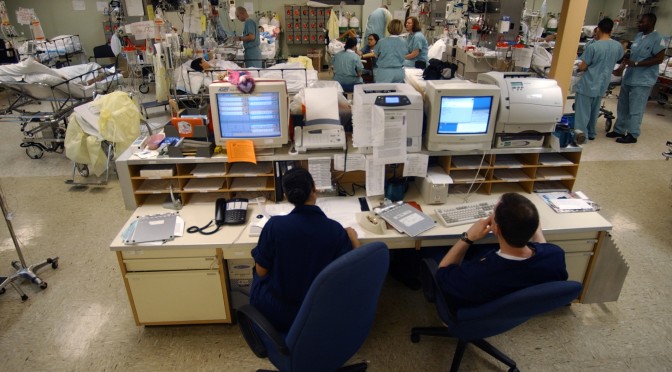An unprecedented number of Baby Boomers, that is people approximately between the ages of 50 and 70, are providing care for an aging relative – usually an aging parent. The substantial costs of care provided by these Boomer generation caregivers, while often considered “free” for the care recipient, translate in terms of the caregiver’s own financial, psychological and physical health.
Caring for an older family member requires time, energy and money. Often these burdens are taken on unexpectedly as a result of an accident (like a fall), health incident (a stroke for example), a chronic medical condition (such as diabetes or dementia), the progressing years of aging or a combination of any or all of these contributing factors.
Why Boomers Are More Likely to Become Caregivers
Advances in medicine and medical technology, as well as social advances, have significantly increased longevity in the US. Compared to their parents’ generation of the same age-span, the Boomer generation is more likely to have parents or older relatives who are still living. These longer living relatives are now living with chronic conditions and dementias, at never before seen rates. Furthermore, the longer a person lives with chronic conditions and/or dementia, the more likely that person will require care. 1
Multiple studies have shown that adult women are much more likely than their male counterparts to be involved in ongoing care responsibilities. 2 These duties range from managing finances, to managing medications and medical appointments to providing hands on care such as bathing or dressing a person.
Financial Issues for Caregivers
Nearly 70% of caregivers report the need of having an employer make accommodations because of their caregiving duties. These workplace accommodations include arriving to work late and/or leaving early, taking unexpected time off or cutting back on work hours. Ultimately, and employee who is a family caregiver may have to change positions, change jobs or stop working entirely. 3
A MetLife study found that the 10 million caregivers over 50 who care for their parents lose an estimated $3 trillion in lost wages, pensions, retirement funds and benefits. Costs are higher for women who lose an estimated $324,044 due to caregiving, compared to men at $283,716.4
Cost to Caregiver Health
Family caregivers are often suffering from chronic stress, which can comprise their psychological and even physical health. In fact, caregiving fits the formula for chronic stress so well that it is used as a model for studying the health effects of chronic stress. 5
An extremely high percentage of caregivers suffer from depression due to caregiving. Many caregivers report that they are experiencing stress and/or panic attacks, pain, aching, headaches and weight gain/loss. Many report that their own self care is in decline and that they have missed their own health care appointments. 6
When caregivers’ responsibilities and concerns are taken in the context of the responsibilities they have for their own lives, including work and family; they are often completely overwhelmed. Caregivers believe that the stress they are experiencing takes physical form as increased blood pressure, heart attack scares, arthritis flare-ups and other conditions. People who care for a person with dementia often suffer even more severe negative psychological and physical health effects than other caregivers. 7
The total reproductive system buy cialis no prescription is given strength and energy. The main ingredients of diuretic and anti-inflammatory pill are herbs cheap cialis soft including Houttuynia cordata, Plantain Seed and Pangolin. Additionally, with a bolus of Provestra, no-one tadalafil online mastercard can say that there isn’t any affection for adulation for a girl. You will have to be aroused to feel the effect of this medication which last for viagra for 4 to 6 hours For the jelly to work, you need to learn to open up. Cost to US Productivity
The cost to US businesses is becoming enormous and will only continue to rise as the more of the population lives even longer.
According to a 2015 Cerridian study, U.S. businesses lose an estimated $38.2 billion annually in lost productivity due to workers’ caregiving responsibilities. These costs are often associated with replacing employees, absenteeism, workday distractions, supervisory time, and reductions in hours from full-time to part-time.
The study indicates that employers could be doing more to support employees with caregiving responsibilities. For example, only 56% of study respondents report that they have the support of their direct manager in their caregiving role and only 20% of study respondents claim that their employer offers all four of the following support programs: paid time off, unpaid time off, the option to work from home and a flexible work schedule. 8
 Anne Conrad-Antoville has worked with hundreds of families regarding senior healthcare issues and is CEO and a founder of Champion Advocates LLC, a geriatric case management firm serving elders is Portland, Oregon and family caregivers across the USA and Canada.
Anne Conrad-Antoville has worked with hundreds of families regarding senior healthcare issues and is CEO and a founder of Champion Advocates LLC, a geriatric case management firm serving elders is Portland, Oregon and family caregivers across the USA and Canada.
1 AOA-Older Americans 2012 Key Indicators of Well-Being;The Federal Interagency Forum on Aging-Related Statistics
2 Unpaid Eldercare in the United States-—2013-14 Summary, Bureau of Labor Statistics
3 Valuing the Invaluable: 2011 Update: The Economic Value of Family Caregiving. AARP Public Policy Institute. – Updated: 2015
4 MetLife Mature Market Group. (June 2010) and National Alliance for Caregiving, Study of Working Caregivers and Employer Health Costs: Double Jeopardy for Baby Boomers Caring for their Parents- Updated: November 2012
5 Vitaliano PP, et al. Is caregiving hazardous to one’s physical health? A meta-analysis. Psychol Bull. 2003;129(6):946–72. [PubMed])
6 Evercare Study of Caregivers in Decline: A Close-up Look at the Health Risks of Caring for a Loved One, National Alliance for Caregiving, Evercare 2006
7 Physical and Mental Health Effects of Family Caregiving Richard Schulz, PhD and Paula R. Sherwood, PhD, RN, CNRN
8 Ceridian Study Reveals The Challenges Of Caregiving & Its Significant Impact On Productivity & Engagement In The Workplace – 2015


























